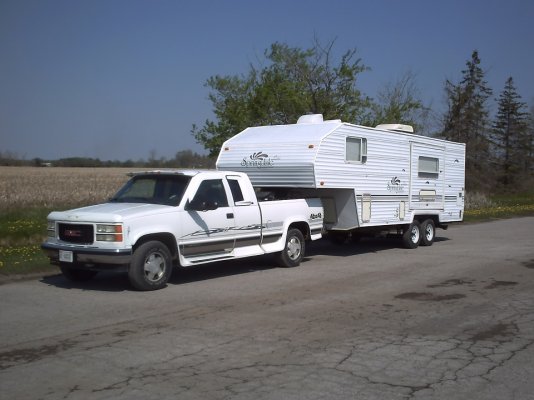I'm new to the site and very much appreciate the voluminous discussion that has been posted in the past. However, like others I am wrestling with the dilemma of the torque, towing and payload capacities of the new 1/2 ton pick-ups. Coupled with a trend towards light 5th wheelers I am perplexed as to why I wouldn't pair a Ford F150 Eco-Boost with one of the 5th wheels noted on the attached spreadsheets. For the record I have owned Ford, Dodge and Chevy Trucks and respect the biases in favor of the Cummins I6 Diesel over the lighter weight aluminum components. I also appreciate the new lighter weight aluminum F150 bodies and would like to note that my 2005 Chevy Tahoe has sported aluminum hood and trunk for a decade now. Nothing new there and about time manuf. adopted aluminum for all body parts IOP. Hopefully this discussion will escalate beyond brand favoritism and focus on the numbers and real world conditions. I repeat I am a newbie to the 5th wheeler scene having owned only smaller travel trailers. Our hope and dream is to travel the four corners of our beautiful country with a comfortable 5th wheeler (26-27 ft) towed by a truck that I can also use as a primary vehicle.
The Summary spreadsheet attached calculates the % of of the manufacturer's specified load ratings for 5 different Tow Vehicles with various 5th Wheels and TT. I have included the referenced numbers for anyone that may be interested. I would love it if someone would shoot holes in my calculations. I was trying to gauge what the max I could load and tow, safely with at least a 10-15% margin in capacity. I have assumed that the 5th Wheel tankage would only be filled to 50% of its max. As I see it the only vehicle capable of pulling the 5th wheelers listed is the Ford F150 Super Crew with the HD Payload and Towing Package...UNLESS of course I went to a Ram 3500 (or Ford Super Duty models). Somewhat impractical for my daily use. Is the 10-15% too narrow a margin? I welcome any and all comments. Thanks for all guidance.
The Summary spreadsheet attached calculates the % of of the manufacturer's specified load ratings for 5 different Tow Vehicles with various 5th Wheels and TT. I have included the referenced numbers for anyone that may be interested. I would love it if someone would shoot holes in my calculations. I was trying to gauge what the max I could load and tow, safely with at least a 10-15% margin in capacity. I have assumed that the 5th Wheel tankage would only be filled to 50% of its max. As I see it the only vehicle capable of pulling the 5th wheelers listed is the Ford F150 Super Crew with the HD Payload and Towing Package...UNLESS of course I went to a Ram 3500 (or Ford Super Duty models). Somewhat impractical for my daily use. Is the 10-15% too narrow a margin? I welcome any and all comments. Thanks for all guidance.



